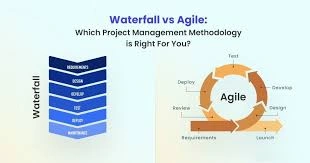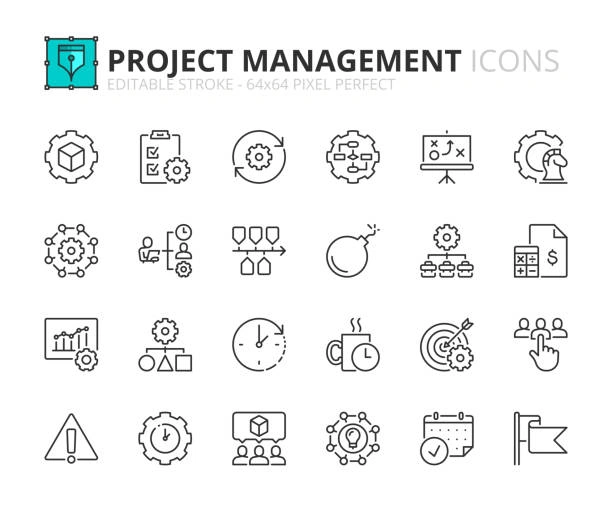Course Overview:
This 5-day course provides a comprehensive exploration of the two most prominent project management methodologies: Waterfall and Agile. Participants will gain an in-depth understanding of each approach, their key principles, and practical applications. The course will compare the structured, linear Waterfall method with the flexible, iterative Agile approach, helping professionals choose the best strategy based on project needs. This course equips participants with the necessary tools and knowledge to navigate between Waterfall and Agile methodologies effectively, ensuring their ability to manage any project type efficiently.
Duration
5 Days
Who Should Attend
- Project Managers and Coordinators
- Business Analysts
- Team Leaders and Supervisors
- Software Developers and IT Professionals
- Professionals involved in project planning and execution
- Anyone interested in understanding the differences between Waterfall and Agile methodologies and how to apply them in project management
Course Objectives
By the end of this course, participants will be able to:
- Understand the foundational principles of Waterfall and Agile project management methodologies.
- Learn to identify the strengths, weaknesses, and best use cases for both methodologies.
- Gain the skills to select the appropriate project management approach based on project scope, complexity, and stakeholder requirements.
- Develop practical strategies for integrating Agile practices into traditional Waterfall environments.
- Analyze and apply the principles of iterative project management to deliver value-driven results in Agile environments.
- Improve team collaboration, flexibility, and responsiveness in project execution.Master decision-making frameworks to approach and resolve complex project problems.
Course Outline:
Module 1: Introduction to Project Management Methodologies
- Overview of Project Management Fundamentals
- Introduction to Waterfall and Agile Approaches
- The Evolution of Waterfall and Agile in Modern Project Management
- Understanding Project Lifecycle: Waterfall vs. Agile
Module 2: The Waterfall Approach
- The Linear Nature of Waterfall: Phases and Stages
- Requirements Gathering and Documentation
- Pros and Cons of the Waterfall Method
- Case Studies: When Waterfall Works Best
- Hands-on Activity: Creating a Waterfall Project Plan
Module 3: The Agile Approach
- Agile Principles: Iterative and Incremental Development
- Agile Frameworks: Scrum, Kanban, and Lean
- The Role of Continuous Improvement and Customer Feedback
- Case Studies: Successful Agile Project Implementations
- Hands-on Activity: Developing an Agile Sprint Plan
Module 4: Comparing Waterfall and Agile
- Key Differences in Planning, Execution, and Delivery
- Resource and Time Management in Waterfall vs. Agile
- Adapting to Change: Agile Flexibility vs. Waterfall Structure
- Hybrid Models: Combining Waterfall and Agile
- Hands-on Activity: Identifying the Best Approach for Various Project Scenarios
Module 5: Practical Application and Best Practices
- Integrating Agile Practices into Traditional Waterfall Projects
- Transitioning Teams from Waterfall to Agile
- Best Practices for Project Managers in a Hybrid Environment
- Hands-on Exercise: Designing a Hybrid Project Management Plan
Customized Training
This training can be tailored to your institution needs and delivered at a location of your choice upon request.
Requirements
Participants need to be proficient in English.
Training Fee
The fee covers tuition, training materials, refreshments, lunch, and study visits. Participants are responsible for their own travel, visa, insurance, and personal expenses.
Certification
A certificate from Ideal Sense & Workplace Solutions is awarded upon successful completion.
Accommodation
Accommodation can be arranged upon request. Contact via email for reservations.
Payment
Payment should be made before the training starts, with proof of payment sent to outreach@idealsense.org.
For further inquiries, please contact us on details below:






